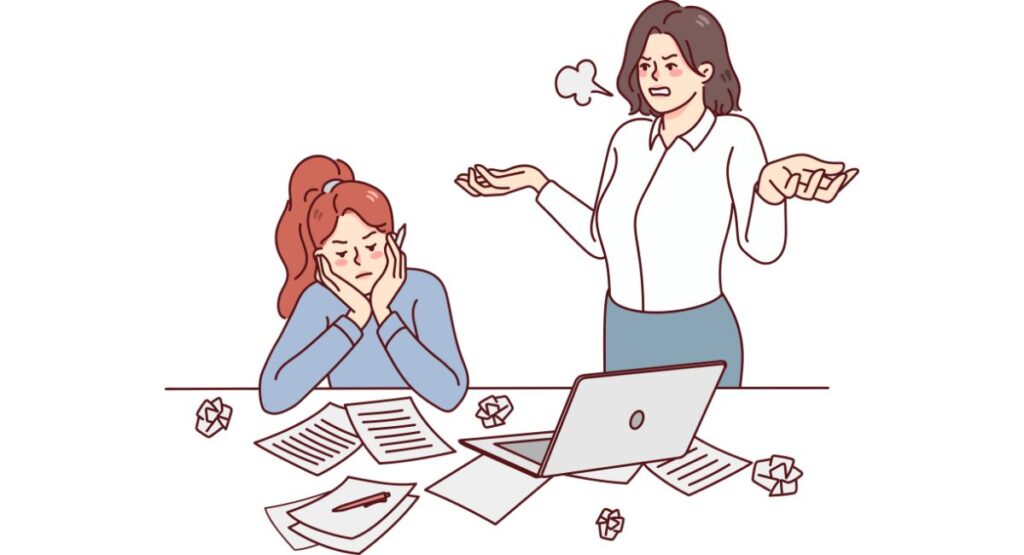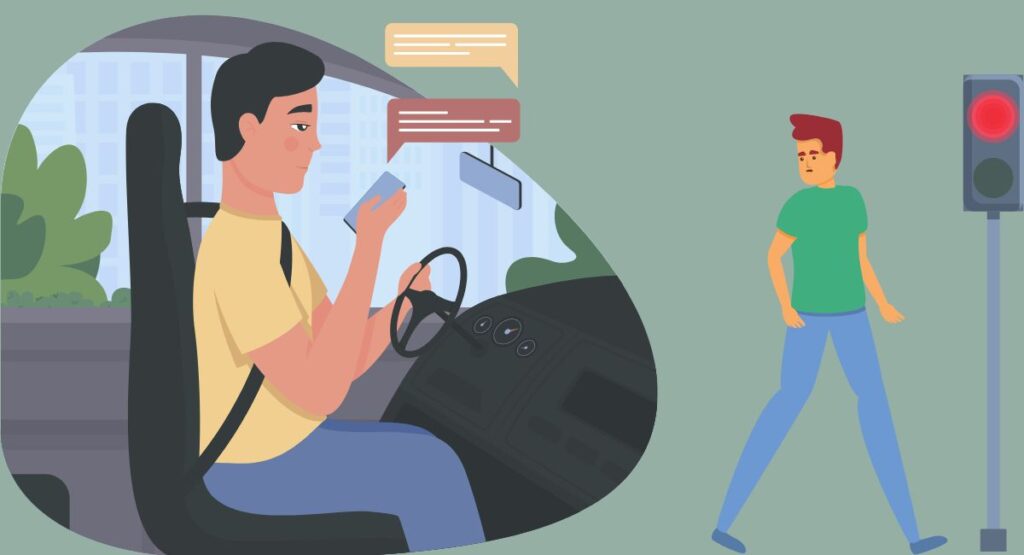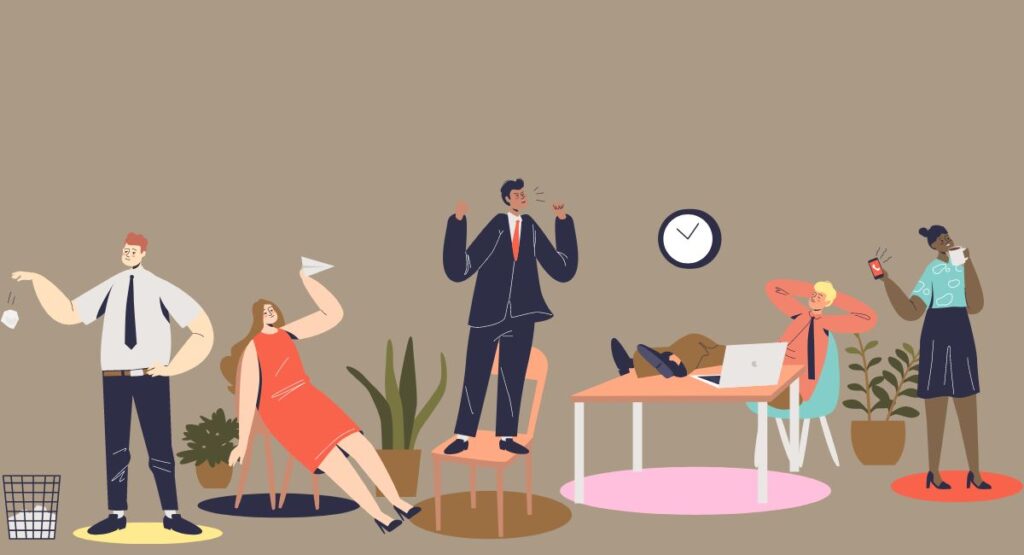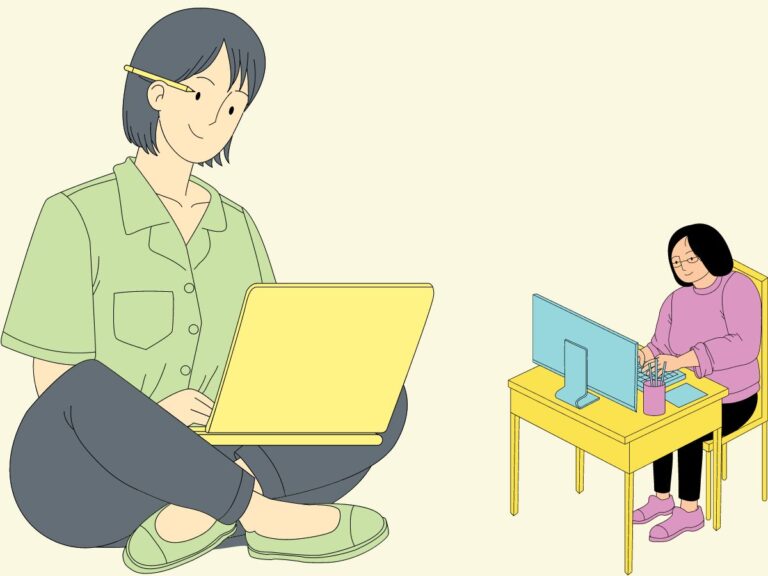How To Stop Procrastinating – 6 Tips To Help
Procrastination is a common problem that many people face daily. It is the act of delaying or postponing tasks and can lead to increased stress, decreased productivity, and a lack of accomplishment. Also, procrastination can lead to guilt, shame, and low self-esteem. It is critical to understand that procrastination is not simply a matter of laziness or a lack of discipline but rather a complex psychological phenomenon caused by various factors. However, there is hope for those struggling with procrastination, as several strategies and techniques can be employed to overcome this issue and improve one’s ability to complete tasks efficiently. How to stop procrastinating?
Procrastination can manifest in various ways, such as avoiding starting a task, delaying a task, or spending excessive time on unimportant tasks. It can also lead to a cycle of negative self-talk, such as “I’ll do it later,” “It’s not that important,” or “I work better under pressure.” Procrastination can also be caused by underlying psychological conditions such as anxiety, depression, and ADHD.
It is important to note that procrastination is normal behavior, and everyone procrastinates to some degree. However, when procrastination becomes chronic, it can significantly impact one’s personal and professional life. Individuals must learn how to manage procrastination to improve productivity, reduce stress, and increase overall well-being.
In conclusion, procrastination is a common problem that can lead to decreased productivity, increased stress, and a lack of accomplishment. It is essential to understand that procrastination is not simply a matter of laziness or a lack of discipline but rather a complex psychological phenomenon caused by various factors. However, there are ways to overcome procrastination and improve one’s ability to complete tasks efficiently.

Identify the reasons for procrastination.
Procrastination is a complex phenomenon that can be caused by various factors. Some common reasons for procrastination include: How to stop procrastinating.
- Lack of motivation: Procrastination can occur when an individual does not see the value or importance of a task. When a task is perceived as uninteresting or unimportant, it can be challenging to find the motivation to begin working on it.
- Fear of failure: Procrastination can also be caused by fear of failure or fear of success. When an individual is afraid of not being able to complete a task successfully, they may put it off to avoid the potential disappointment or embarrassment of failure. On the other hand, if an individual is afraid of the changes that may come with success, they may avoid starting the task.
- Poor time management skills: Procrastination can also be caused by poor time management skills. When individuals cannot effectively plan and organize their time, they may need help completing tasks promptly.
- Perfectionism: Procrastination can be caused by perfectionism. When an individual has high standards for their work, they may put off starting a task because they are afraid they will not be able to meet their own expectations.
- Distractibility: Procrastination can occur when an individual is easily distracted by other things, such as social media, phone notifications, or other activities. They may find it challenging to focus on the task and put it off until later.
- Low self-esteem: Procrastination can also be caused by low self-esteem. When an individual lacks confidence in their abilities, they may put off starting a task because they are afraid they will not be able to complete it successfully.
- Emotional or Psychological Issues: Some procrastinate due to underlying emotional or psychological issues such as depression, anxiety, ADHD, or trauma. These issues can make it difficult for individuals to focus and complete tasks, leading to procrastination.
Understanding the root causes of procrastination is essential in developing strategies to overcome it. By identifying the specific factors that contribute to procrastination, individuals can develop targeted strategies to address them, such as setting clear goals, breaking down tasks into smaller steps, and practicing self-compassion.

How To Stop Procrastinating: Set clear and specific goals
Setting clear and specific goals is one of the most effective ways to overcome procrastination and increase motivation. Clear and specific goals provide direction and purpose, making staying focused on the task easier. When setting goals, it is vital to ensure they are SMART: Specific, Measurable, Achievable, Relevant, and Time-bound.
When setting specific and measurable goals, it is essential to remember the outcome you want to achieve. For example, instead of setting a goal to “write a paper,” set a goal to “write a 15-page paper of the effects procrastination has on college students, with at least 10 sources cited, by the end of the week.” This specific and measurable goal provides a clear understanding of what needs to be done and when it needs to be completed.
Another effective strategy for overcoming procrastination is breaking down larger tasks into smaller, manageable chunks. This helps to make the task less overwhelming and more manageable. For example, instead of setting a goal to “write a 15-page paper,” break it down into smaller tasks such as “research sources for the paper,” “outline the paper,” and “write one page of the paper per day.” This approach makes the task less daunting and more achievable.
Additionally, it is crucial to ensure that your goals are relevant to your current situation and aligned with your values and priorities. Setting irrelevant or unimportant goals can lead to a lack of motivation and a higher likelihood of procrastination.
Finally, setting time-bound goals helps to create a sense of urgency and accountability. Setting a deadline for completing a task is essential, as it helps to focus the mind and increase motivation. How to stop procrastinating.
In conclusion, setting clear and specific goals is essential in overcoming procrastination. When setting goals, it is vital to ensure they are SMART: Specific, Measurable, Achievable, Relevant, and Time-bound. Additionally, breaking down larger tasks into smaller, manageable chunks and ensuring that the goals are relevant and time-bound can increase motivation and focus.

Prioritize tasks
Prioritizing tasks is an essential step in overcoming procrastination and improving productivity. When faced with many tasks, it can be challenging to determine which tasks are most important and which can be put off. Prioritizing tasks based on importance and urgency helps focus on the most critical tasks first, reducing the risk of procrastination.
One effective tool for prioritizing tasks is the Eisenhower matrix. The Eisenhower matrix is a simple tool that helps to categorize tasks based on their level of importance and urgency. Tasks are divided into four categories: urgent and important, important but not urgent, urgent but not necessary, and not urgent or essential.
Tasks that are both urgent and important should be given the highest priority as they need to be completed as soon as possible. These tasks include deadlines, urgent emails, or important meetings. Tasks that are important but not urgent should also be highly prioritized as they are essential for achieving long-term goals. These tasks include skill development, planning, or goal setting.
Tasks that are urgent but optional should be delegated or outsourced. They may also be put off until the task that is both urgent and important is completed. Finally, tasks that are not urgent or important can be put off or eliminated altogether. How to stop procrastinating.
In addition to the Eisenhower matrix, it’s also good to maintain a task list or schedule daily, as it helps to keep track of all the tasks that need to be done and prioritize them. It also helps to review the task list at the end of the day and plan for the next day.
In conclusion, Prioritizing tasks is essential in overcoming procrastination and improving productivity. One effective tool for prioritizing tasks is the Eisenhower matrix, which helps to categorize tasks based on their level of importance and urgency. Prioritizing tasks based on importance and urgency helps focus on the most critical tasks first, reducing the risk of procrastination. Maintaining a task list or schedule daily is also suitable for better tracking and prioritizing.

Eliminate distractions
Eliminating distractions is a crucial step in overcoming procrastination and increasing productivity. Distractions can come in many forms, such as social media notifications, email alerts, phone calls, or even internal thoughts and worries. These distractions disrupt focus and make it difficult to complete tasks efficiently.
One of the most common and pervasive distractions today is social media. Platforms like Facebook, Twitter, and Instagram are designed to be highly engaging and can significantly distract many people. To eliminate these distractions, it’s essential to set boundaries around social media use, such as turning off notifications during work hours or using apps like Freedom or Cold Turkey to block access to social media sites during specific times of the day.
Another way to eliminate distractions is to create a dedicated workspace. A dedicated workspace should be free from distractions such as television, video games, and other electronic devices unrelated to work. This helps create a clear separation between work and leisure and makes it easier to focus on tasks.
It is also important to minimize interruptions during the workday. For example, turning off emails or instant messaging notifications during work hours can reduce interruptions and improve focus. How to stop procrastinating.
Additionally, creating a to-do list can minimize distractions and improve focus. A clear understanding of what needs to be done makes it easier to focus on the task and reduces distractions.
In conclusion, eliminating distractions is crucial in overcoming procrastination and increasing productivity. Distractions can come in many forms, such as social media notifications, email alerts, phone calls, or even internal thoughts and worries. To eliminate distractions, it’s essential to set boundaries around social media use, create a dedicated workspace, minimize interruptions during the workday, and create a to-do list.
Use A Timer
Using a timer is an effective way to overcome procrastination and increase productivity. Setting a timer for a specific time can help focus on the task and create a sense of urgency. One popular timer technique is the Pomodoro Technique, which involves working for 25 minutes and then taking a 5-minute break. How to stop procrastinating.
The Pomodoro Technique was developed by Francesco Cirillo in the late 1980s to improve productivity and focus. The technique is based on the idea that working in short, focused bursts is more effective than working for long periods. The Pomodoro Technique helps to eliminate distractions and improve focus by breaking up work into 25-minute intervals and taking short breaks in between.
During the 25-minute work interval, focusing solely on the task and avoiding distractions is essential. Once the timer goes off, take a 5-minute break to rest and recharge. This break can be used for stretching, taking a walk, or even checking social media. After the break, start another 25-minute work interval. How to stop procrastination.
It’s important to note that the Pomodoro Technique is flexible. You can adjust the time intervals to suit your needs. For example, if you find that 25 minutes is too short, you can increase the work interval to 30 minutes, and so on.
In addition to the Pomodoro Technique, there are other time management techniques available such as Time Boxing, where you set a specific amount of time to work on a task and then move on to the next task, and the 52/17 technique, where you work for 52 minutes and take a 17-minute break.
In conclusion, Using a timer is an effective way to overcome procrastination and increase productivity. Setting a timer for a specific time can help focus on the task and create a sense of urgency. The Pomodoro Technique is a popular technique that can increase focus and productivity by breaking up work into 25-minute intervals and taking short breaks. Additionally, it’s important to note that the Pomodoro Technique is flexible and can be adjusted to suit your needs. And there are other time management techniques available such as Time Boxing and the 52/17 method.

How To Stop Procrastinating: Reward Yourself
Rewarding yourself for completing tasks is an effective way to increase motivation and make the task more enjoyable. When we set goals and achieve them, our brain releases dopamine, a chemical associated with pleasure and satisfaction. By linking the completion of a task with a reward, we can harness this natural response to increase motivation and make the task more enjoyable.
Rewards can take many forms, such as a small treat, a short break, or even a simple pat on the back. It is crucial to choose rewards that are meaningful and motivating to you. For example, if you’re trying to quit smoking, your reward for not smoking for a day could be buying yourself a small gift or a nice meal. How to stop procrastinating.
It’s important to note that rewards should be given immediately after completing the task, as this helps to create a positive association between the task and the reward. Additionally, rewards should be proportional to the task so that small tasks are rewarded with small rewards, and more extensive tasks are rewarded with larger rewards.
Another way to reward yourself for completing tasks is to set up a reward system. For example, if you complete a certain number of tasks within a given time frame, you can reward yourself with something more significant such as a vacation or a new gadget.
In conclusion, rewarding yourself for completing tasks effectively increases motivation and makes the task more enjoyable. By linking the completion of a task with a reward, we can harness the brain’s natural response to increase motivation and complete the task more enjoyable. Rewards can take many forms, such as a small treat, a short break, or even a simple pat on the back. It’s vital to choose rewards that are meaningful and motivating to you and to give tips immediately after completing the task. Additionally, setting up a reward system for yourself, where you reward yourself with something bigger after completing a certain number of tasks within a given time frame, can also be effective.

Conclusion: How to stop procrastinating
In conclusion, procrastination is a common problem that can significantly impact personal and professional life. However, by understanding the reasons for procrastination, setting clear and specific goals, prioritizing tasks, eliminating distractions, using a timer, and rewarding yourself, it is possible to overcome this problem and improve productivity and reduce stress. How to stop procrastinating.
It’s important to remember that change takes time and may take some time before you see the results. Therefore, being patient with yourself and staying encouraged if you are still waiting for immediate results is essential. Remember, it’s a process, and it may take some time to see the results.
Additionally, it’s important to note that no single strategy or technique is guaranteed to work for everyone. Experimenting with different methods and techniques is essential to find what works best for you. It’s also important to be mindful of your progress and make adjustments as needed.
In conclusion, procrastination is a common problem, but it can be overcome with the right strategies and techniques. It’s essential to understand the reasons for procrastination, set clear and specific goals, prioritize tasks, eliminate distractions, use a timer and reward yourself. Remember that change takes time to be patient with yourself and experiment with different strategies and techniques to find what works best for you. Finally, you must be mindful of your progress and make necessary adjustments.






